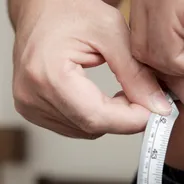You might feel overworked, underpaid and otherwise unappreciated by your employers, but mental health experts say that you're definitely not imagining things.
According to experts in mental and emotional well-being, the optimal amount of time we should be working in order to stave off insanity is around eight hours a week - which you math nerds will notice is equivalent to around one day every seven.
Six day weekend, anyone?

This comes from researchers at the Universities of Cambridge and Salford, who found that beyond those precious eight hours, there was no increase in well-being associated with working hours.
Well, I could've told you that...
These sociologists had set out to define a recommended "dosage" of work that would enable us to find the sweet spot when it comes to employment. With automation on the rise, and jobs in general needing fewer warm bodies, it's important to know how much work is beneficial if we're going to be redistributing labour.

"We have effective dosage guides for everything from Vitamin C to hours of sleep in order to help us feel better, but this is the first time the question has been asked of paid work," explains study co-author, Dr Brendan Burchell, sociologist at Cambridge University.
"We know unemployment is often detrimental to people’s well-being, negatively affecting identity, status, time use, and sense of collective purpose. We now have some idea of just how much paid work is needed to get the psychosocial benefits of employment – and it’s not that much at all."
Meanwhile, study first author from Salford University, Dr Daiga Kamerade, said the research could be used to better redistribute working hours, stating that the working week should be dramatically reduced to accommodate for the influx of automation - allowing more people to work at a lower intensity.

"If there is not enough for everybody who wants to work full-time, we will have to rethink current norms," he said.
"This should include the redistribution of working hours, so everyone can get the mental health benefits of a job, even if that means we all work much shorter weeks. Our findings are an important step in thinking what the minimum amount of paid work people might need in a future with little work to go round."
Among the creative solutions for better redistributing work hours include two-hour work days, five-day weekends or even having two months off for every month you're in the office.
Good luck selling that to your employer, but in the future, who knows?
If a robot can do a lot of the grunt work, we can hopefully save our human energy for work which a lot more fulfilling and creative - and we won't have to break our backs doing it, either.












